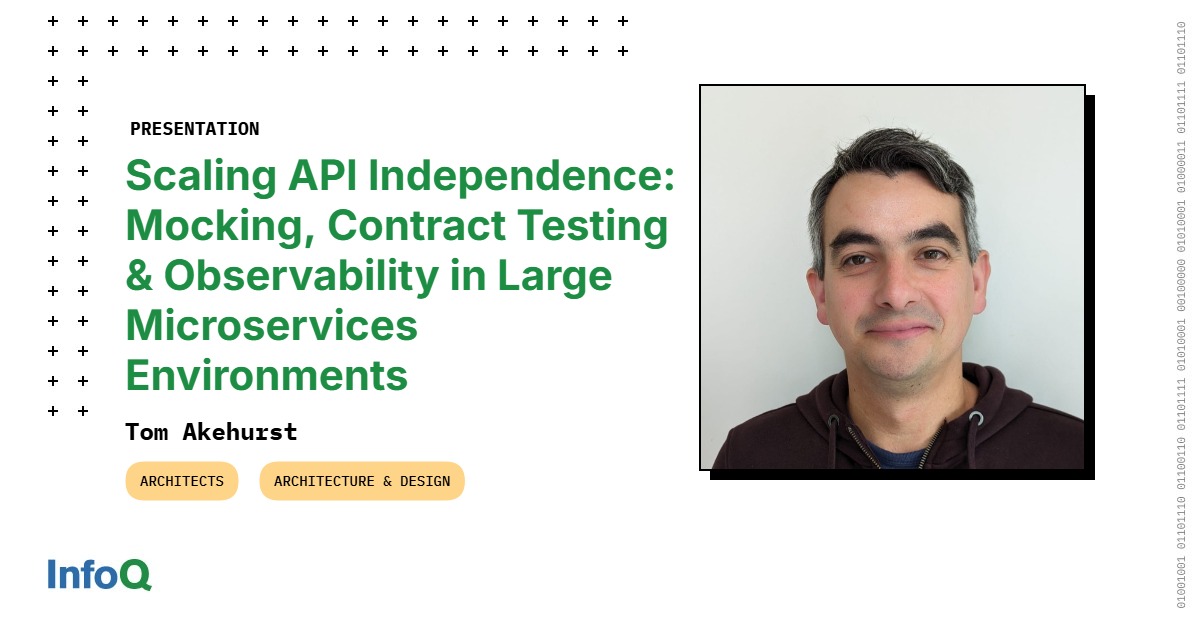
"The reason we choose to build systems in this way is fundamentally about being able to work in a decoupled and independent way for teams to be able to build and ship things and add value to their business in a way that's not highly dependent on other people in their organization or outside of it. I suspect that those of us that have done this for a while realize that the reality of this doesn't always measure up."
"The result of this in terms of the engineering experience and the impact on engineering productivity is that we're not doing a lot of the things we want to be doing. We're fighting broken environments. We're fighting with data not being correct in the environments we're working in. We're waiting for people to ship new API features that we need before we can move forward."
Microservices aim to enable decoupled, independent team work and faster delivery by reducing dependencies. Real-world microservices deployments often remain heavily interconnected, with persistent coupling and dependencies across teams and systems. Engineering productivity suffers because teams face broken environments, incorrect or missing data, and delays while waiting for unreleased API features. These issues slow delivery and reduce developer satisfaction. API mocking and API simulation offer a way to work around unavailable or unstable dependencies, enabling teams to develop and test independently. Effective large-scale use of API mocking requires additional supporting techniques, careful design, and organizational practices to maintain correctness and reliability.
Read at InfoQ
Unable to calculate read time
Collection
[
|
...
]